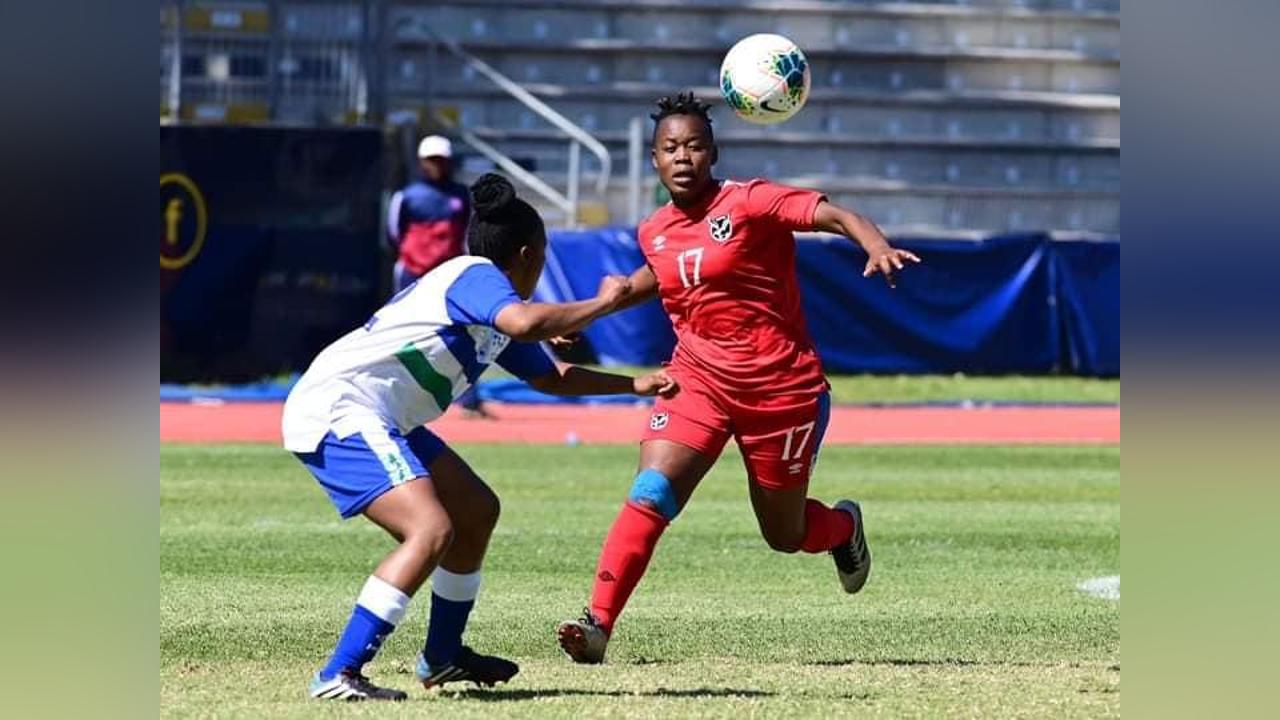Africa-Press – Lesotho. For a long time, Lesotho’s national women’s team, Mehalalitoe, have been the butt of jokes on social media and the players have often had to deal with unsavoury comments and, at times, even homophobia.
What many do not realise is how their mean commentary on the team affects players mentally. Yes, the performance of the national women’s team in the past has warranted some criticism, and they should be criticised when it is justified, but, more than anything, Mehalalitoe needs support.
Before the team departed for the 2022 COSAFA Women’s Championship three weeks ago, the side’s head coach, Pule Khojane, praised the positive spirit within the camp and he felt this time around Mehalalitoe’s performances would reflect their positive energy.
That positivity reigned throughout the tournament. Mehalalitoe were upbeat when they arrived in Port Elizabeth for the regional showpiece and they appeared determined to improve their tattered reputation in the competition.
The team’s management took the lead. Lesotho were staying at the same hotel as Eswatini and Botswana. Prior to their opening Group B game against Eswatini, their opponents asked for a team-bonding meeting but Mehalalitoe were not having it.
Their answer was that they were not there to make friends but to compete. They suggested to Eswatini that the bonding happen after the game which, of course, never happened.
Eswatini were beaten 3-0. On the way to the Nelson Mandela Bay Stadium, the players were in good spirits; they hardly sat down on the bus and sang all the way from the hotel to the stadium.
In Port Elizabeth, Mehalalitoe had a close-knit family which believed in them, including Mahlohonolo, a Xhosa lady who was Lesotho’s loud and proud team liaison officer at the COSAFA Women’s Championship.
She never sat down during Lesotho’s matches and she shouted at the top of her lungs for the full 90 minutes cheering for the players. If you entered Mehalalitoe’s dressing room ahead of their opener you would have been forgiven for thinking they had just won the whole tournament, but they hadn’t even played.
Was that their way of calming nerves? Or maybe it was a sign of togetherness in the team, a group that had one goal and confidence in each other? Even more inspiring for the team was that they were with their leader, Boitumelo Rabale, who had hopped off the plane from Johannesburg that morning straight into the line-up.
The Mamelodi Sundowns star and African club champion went on and wrote her name all over the tie scoring a hat-trick. The skipper had been complaining about exhaustion before the game but insisted on fighting with her teammates on the pitch.
She was visibly tired against Eswatini, and understandably so, she had just played a day before for her club which is why her participation had been in doubt.
Rabale played four games in seven days, which is unheard off. Still, her quality shone throughout and it is no surprise that she was selected into the team of the tournament when all was said and done.
Surprisingly, there were no over-the-top celebrations after Lesotho beat Eswatini. Instead, the players wanted to rest and their minds were already on the next game.
That said, the players were beaming with happiness after beating Eswatini because it was Mehalalitoe’s first win since 2017. Lately the team had not just been losing, even scoring goals was a big ask for Lesotho.
The players believed their win over Eswatini was a milestone moment. Then came Zambia three days later, a game I had personally been dreading. I cracked jokes with Zambian reporters prior to the game who suggested Lesotho would gladly take a point and not play the game if offered; I agreed.
The match ended 7-0 to Zambia, with Barbara Banda running the show. It’s not like Mehalalitoe were outclassed, they were outdone by individual mistakes.
Khojane felt it was a difficult game mentally for his players as they faced a team that just finished third at the CAF Women’s Africa Cup of Nations in July.
Khojane said conceding three quick goals in the first half affected Mehalalitoe and he insisted the final score-line did not reflect his side’s performance on the pitch.
Zambia went on to be crowned champions of the COSAFA Women’s Championships and there is no shame in losing to one of the giants of women’s football on the continent who also happen to be bound for the FIFA Women’s World Cup next year.
Lesotho’s final group game was against Namibia two days after the defeat to Zambia and the match would decide who gets the last spot into the semi-finals.
Normally, after a big defeat, you would expect a sombre mood but it was not the case with Mehalalitoe. The following training session after losing to Zambia was the most cheerful that I have seen.
It was a light one and the players teased each other. They formed two small groups and enjoyed a little rivalry they had created. Khojane then put them up for a crossbar challenge and they loved that one.
The relationship between the coaching staff and the players is intriguing because while there is a clear level of respect, there is also a lot of playfulness.
The players seemed more comfortable with either the team’s assistant coach, Makobo Kepa, or goalkeeper coach, Robert Mojakhomo. Although Mehalalitoe went on to lose 2-0 to Namibia, and it was a painful defeat, they did everything right and they fell behind against the run of play.
With all the positivity, there are still some glaring problems in the team, mainly the goalkeeping department. Some of the goals Mehalalitoe conceded were avoidable and could have been saved.
For More News And Analysis About Lesotho Follow Africa-Press






